Sonys nostalgia nuke is a masterstroke of misty-eyed misdirection
Final Fantasy 7. The Last Guardian. Shenmue 3. Sony’s trifecta of impossible dreams. A video game Christmas made of magic and long-discarded wishes, choreographed by a bona fide corporate messiah. And lo, the people did run into the virtual streets, sobbing, and wailing, laughing and joyful, at the sheer, blinding rapture of it all. In part, I was one of them, because it felt good to be. But I also knew that I had some things to think about. Heavier, less innocent things.
Before I tell you the things I thought about, and continue to think, I need to you to know that I’m not trying to be That Guy. I hate That Guy. He’s a simple-minded, self-aggrandising jerk who thinks that cynicism is the same as wisdom, and that makes him the dumbest Guy in all of Guydom. That’s not what I’m doing here. That’s never what I do. But the thing is, as much as I want to, I can’t shake the knowledge that we all got slightly played last night.
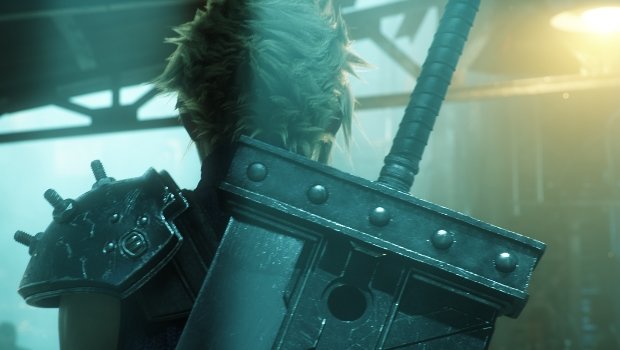
The wording of the above sentence is very deliberate. I really do want to shake that knowledge. Because that’s the very nature of the play. That’s why it’s so damn clever and effective. You see the true nature of E3 – as I’ve said a few times, in relation to aspects of the show – is that it’s an elaborate piece of (often benign) psychological warfare. It’s not necessarily about delivering concrete, tangible products. That’s only half the battle when it comes to garnering brand loyalty. It’s just as much about crafting a persona, an emotional, relatable ‘ghost’ for the machine, boxes, and taglines you’re selling. It’s about turning your faceless corporation into a distinct yet imaginary meta-person, one that you hope the paying public will want to be friends with. It’s about paving the path of your platform’s future in abstract terms, telling people the kind of journey they can expect if they invest now, and letting them fill in the gaps between the facts with what they want the relationship to be.
For the duration of this generation, Sony’s chosen persona has been clear. ‘We’re the cool, creative, hardcore gaming guys. We make the cool, creative stuff that cool, hardcore guys like you want. Screw those suits at Microsoft’. Please understand that I’m not being facetious or critical here. I have every belief that at heart, Sony is that. Certainly, that's a notion compounded by its eclectic games portfolio, as well as the words of every Sony-aligned indie dev I’ve spoken to. But the fact is, Sony is aware of that persona. It’s aware that it works. It’s aware that it’s a persona that a proportion of us love being aligned with, because it speaks to us and who we are. And of course, it’s a persona that Sony is now playing up to.
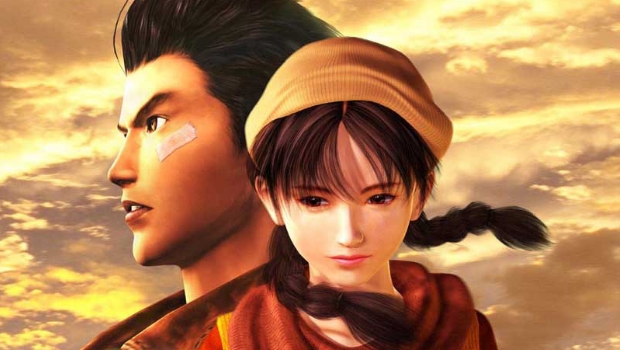
And it needs to. Because there was a very specific purpose in that (genuinely unbelievable) explosion of mythical fan-service last night. By selling everyone so hard on a future made of lost wonders and near-forgotten dreams, Sony has done a brilliant job of diverting attention from the fact that it still has no imminent first-party big-hitters. We’re going into the PS4’s third Christmas propped up by co-opted third-party games and adopted indies. In that respect, being clinically brutal, things really haven’t improved since the console’s launch.
But those are powerful distractions. Final Fantasy 7 is - for a whole generation now grown-up and possessing of convenient disposable income - a resonant cultural touchstone insolubly ingrained in the lives of its most impassioned and ‘serious’ gamers. You know, the ones who develop long-term loyalty to brands and spend lots of money on them over long periods of time. The Last Guardian’s roots lie in a series with similar resonance, two games at the heart of the burgeoning ‘games as art’ movement, immaculately crafted, rightly adored works that were fundamental in shifting that same generation’s perceptions of gaming, and delivering a new, even more exciting perception of a medium it already loved.
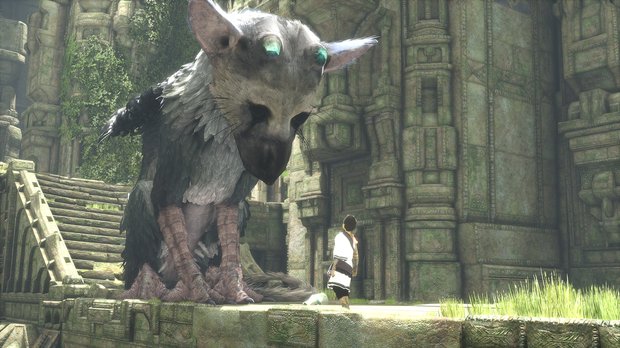
It’s a game inextricably tied to many a gamer’s formative self-realisation, both intellectual and emotional, as well as the period of exciting discovery that shaped their tastes and long-term relationship with games. Even in its almost entirely abstract state, The Last Guardian is a symbol of identity and affirmation, for Sony’s audience as much as for Sony itself.
Sign up to the GamesRadar+ Newsletter
Weekly digests, tales from the communities you love, and more
And Shenmue 3. Good Lord, Shenmue 3. It is all of the above, with an enticingly tragic narrative of loss and redemption to boot. I’m not talking about Ryo’s father here. I’m talking about Sega, the Dreamcast, Yu Suzuki, and Dead Rockstar Syndrome. In the half-imagined, epic narrative of the video games industry, there’s no more mythic, potent stuff than the tale of that period. A lost, much-beloved platform holder knocked out of the game at the peak of its creative ability, because it reached too hard for stars it couldn’t afford. An unfinished masterpiece from an esoteric genius, one too beautiful for this mundane world to sustain. A glorious era cut short, one that never grew old, never disappointed, and never turned its back on us. If you need to look like a messiah, raising the dead is a great trick. But if you make a particular point of raising Jimi Hendrix, John Lennon, and James Dean, then you’re really onto a winner. Your disciples are guaranteed.
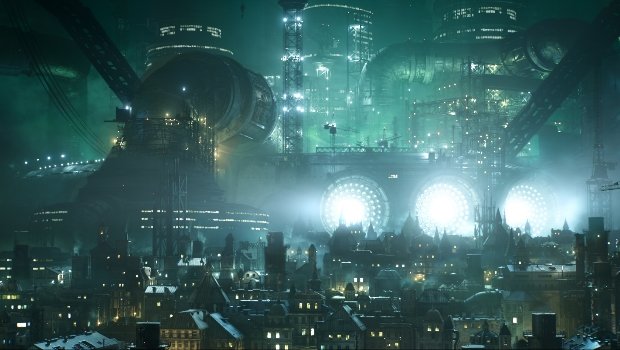
In truth, what we saw last night was not Sony as the grand architect of miracles. What we saw was Sony capitalising on a string of long-gestating coincidences, snaking its way between three separate circumstances to weave a unified, happy, but false narrative of being the saviour of the hardcore’s hopes and dreams.
In truth, Final Fantasy 7 is an excellent JPRG, but one whose legend is amplified by the circumstances of its original release. It was many players’ first JRPG, and also the game that consolidated the unimagined spectacle of early, 3D, cinematic gaming. It was a game raised upon the wonder of the new and the excitement of youth. Its remake will remain an excellent JRPG, but will lose the latter elements of its original importance, inevitably replacing them with controversy over changed in-game elements which many will use to mask the true, uncomfortable realisation that it is no longer 1997.
And it is a remake that was always going to happen. Amid a period of ups and downs for its biggest, longest-running series, it was inevitable that Square-Enix would at some point fashion a fan-pleasing return to that series’ biggest hit. Commitment to that return just could not be openly made until confidence of delivery arrived. Sony has merely taken advantage of the timing to secure an early release on, and implicit association with PlayStation, before the game just as legitimately appears on Xbox and PC as well. But we believe that Sony has delivered a special miracle just for us, because we want to.
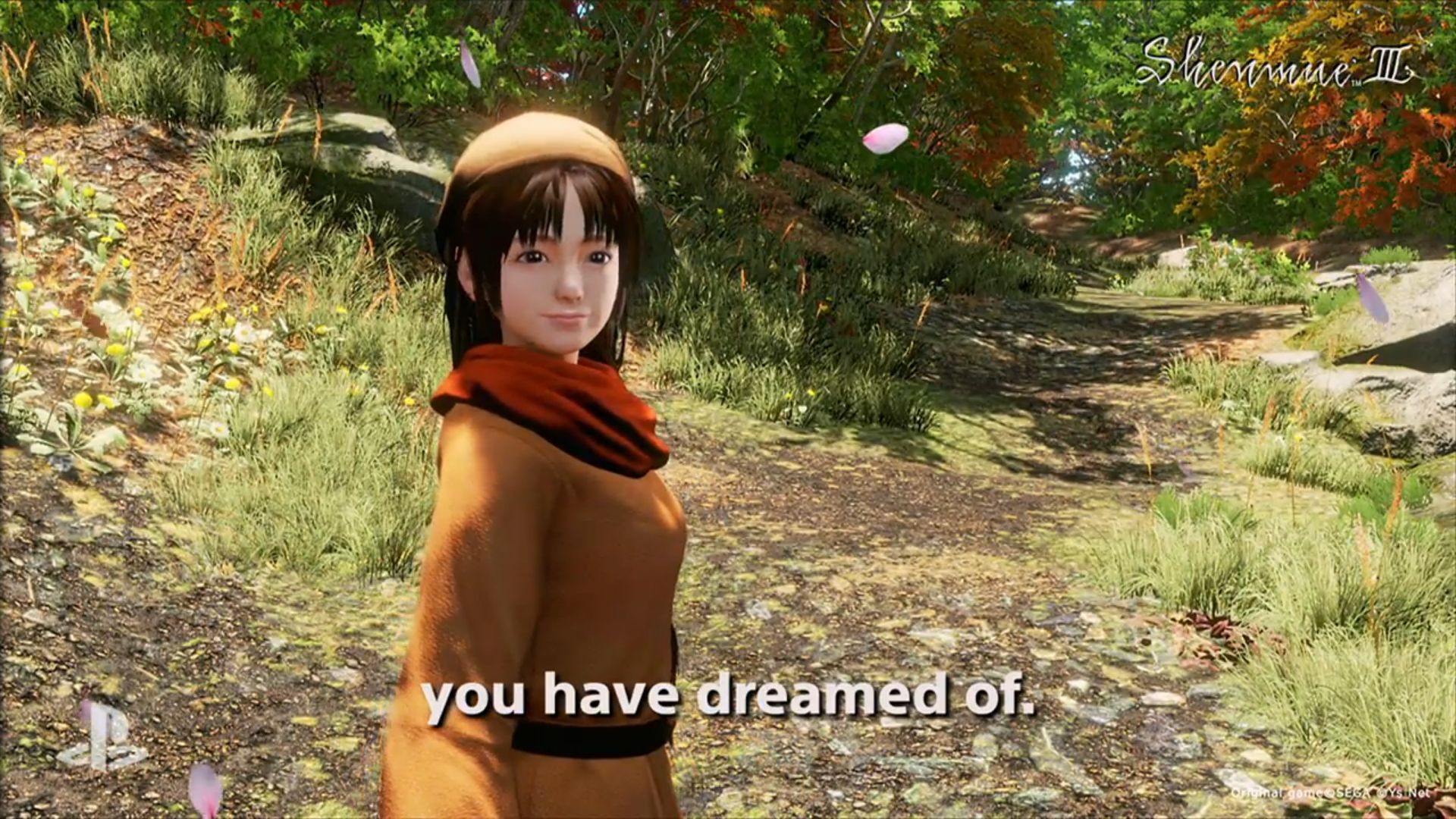
Yu Suzuki has long been open about his desire to make Shenmue 3. He has long been open about the fact that fan support and funding were all he needed. In reality, the start of Shenmue 3’s production should not be a surprise. With every stalwart western developer under the sun Kickstarting the resurrection of its glory days, this return too was inevitable. Sony has simply provided Suzuki with an irrefusable stage on which to promote his independent, already-gestating fundraising effort, in exchange for console exclusivity. And in parallel to FF7, when it arrives on PC and PS4, Shenmue 3 will not achieve the medium-changing feats forged by its predecessors’ unchecked ambition. It will do a great job of recreating those games’ 15-year-old essence, but will not attempt to walk in their groundbreaking footsteps. Neither money nor modern circumstances will allow that. But for now, we believe that Sony has been instrumental in the second coming of a creative revolution, because we want to.
And the Last Guardian? We will believe that Sony has rescued a long-lost piece of magic, when in truth, it has simply pulled together a long-derailed project of its own half-making, one that it should have managed to release years ago. When it arrives, we will celebrate Sony’s benevolent service to our own, internalised mythos, when in truth we will simply be playing the not-shit, Japanese Duke Nukem Forever.
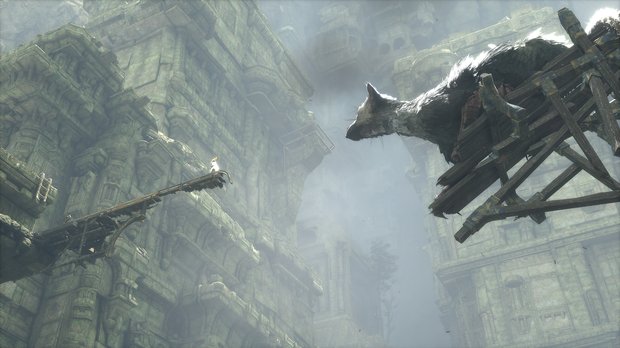
And when these games arrive, they will not arrive as the same epic, instant, three-hit combo of fantasy-made-real implied by their simultaneous announcement. They will be drip-fed to market as and when their independent creators get them ready, over a period of two, maybe three years. Between those flashes of justified excitement, Sony will need more, just as it needs more than it has for 2015. If it does not have that, if it continues to rely on third-party brand-association and console-exclusive indie hits in the years when it cannot re-deliver the likes of this year’s uniquely manufactured, smoke-and-mirrors nostalgia-bomb, then the gaps between those stand-out releases will appear longer and more troubling.
But for the immediate, we won’t think about that. We’ll continue to believe in the magical, partly imaginary future that Sony has cleverly led us to believe it has crafted, because we want miracles to happen. And just as importantly, we will believe in it because doing so will only reassure us of our existing, preciously-held brand biases. And that right there, my friends, is exactly why this play is just so, so good.



